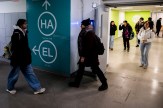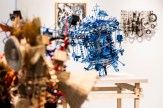Northeastern’s Jewish community reflects, offers prayers on the anniversary of Hamas attack on Israel
An afternoon gathering for faculty and staff was held at Northeastern Hillel on the Boston campus. That was followed by a vigil of remembrance organized by students in the evening on Krentzman Quad.
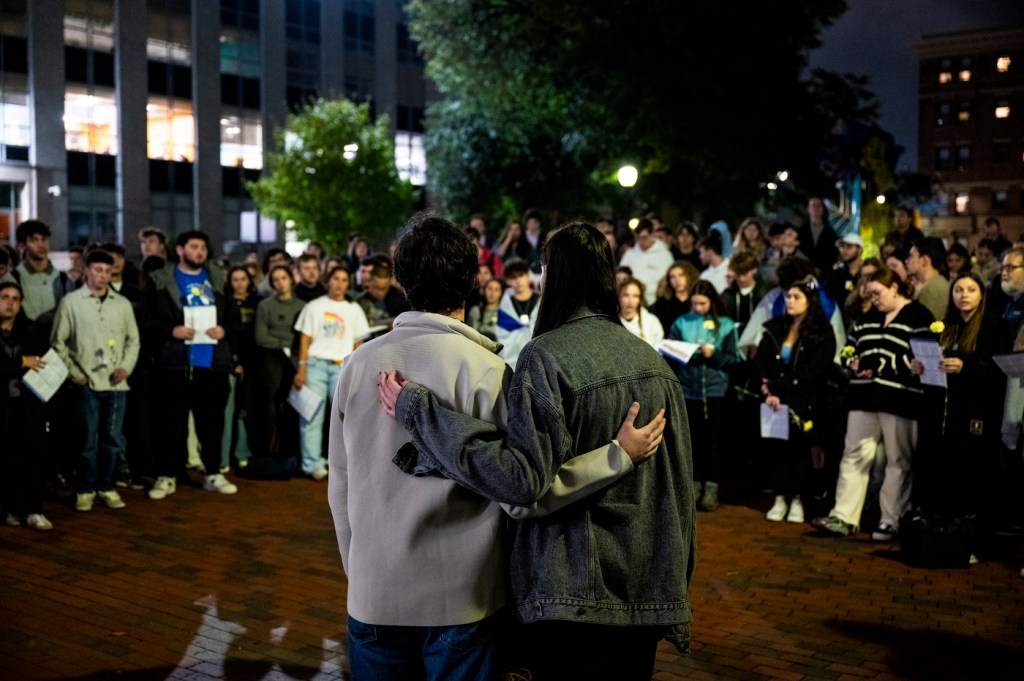
The Northeastern University Jewish community came together Monday to reflect, offer prayers and grieve on the one-year anniversary of the Oct. 7 attack on Israel.
An afternoon gathering for faculty and staff was held at Northeastern Hillel on the Boston campus. That was followed by a vigil of remembrance organized by students in the evening on Krentzman Quad.
That event drew a crowd of several hundred — some draped in Israel flags, others holding carnations — who listened as students shared their memories of Oct. 7, 2023, when Hamas militants invaded southern Israel, killing some 1,200 people and taking 250 others hostage.
The speakers included Gabriella Kislin, a third-year business administration major and member of several on-campus organizations for Jewish students.
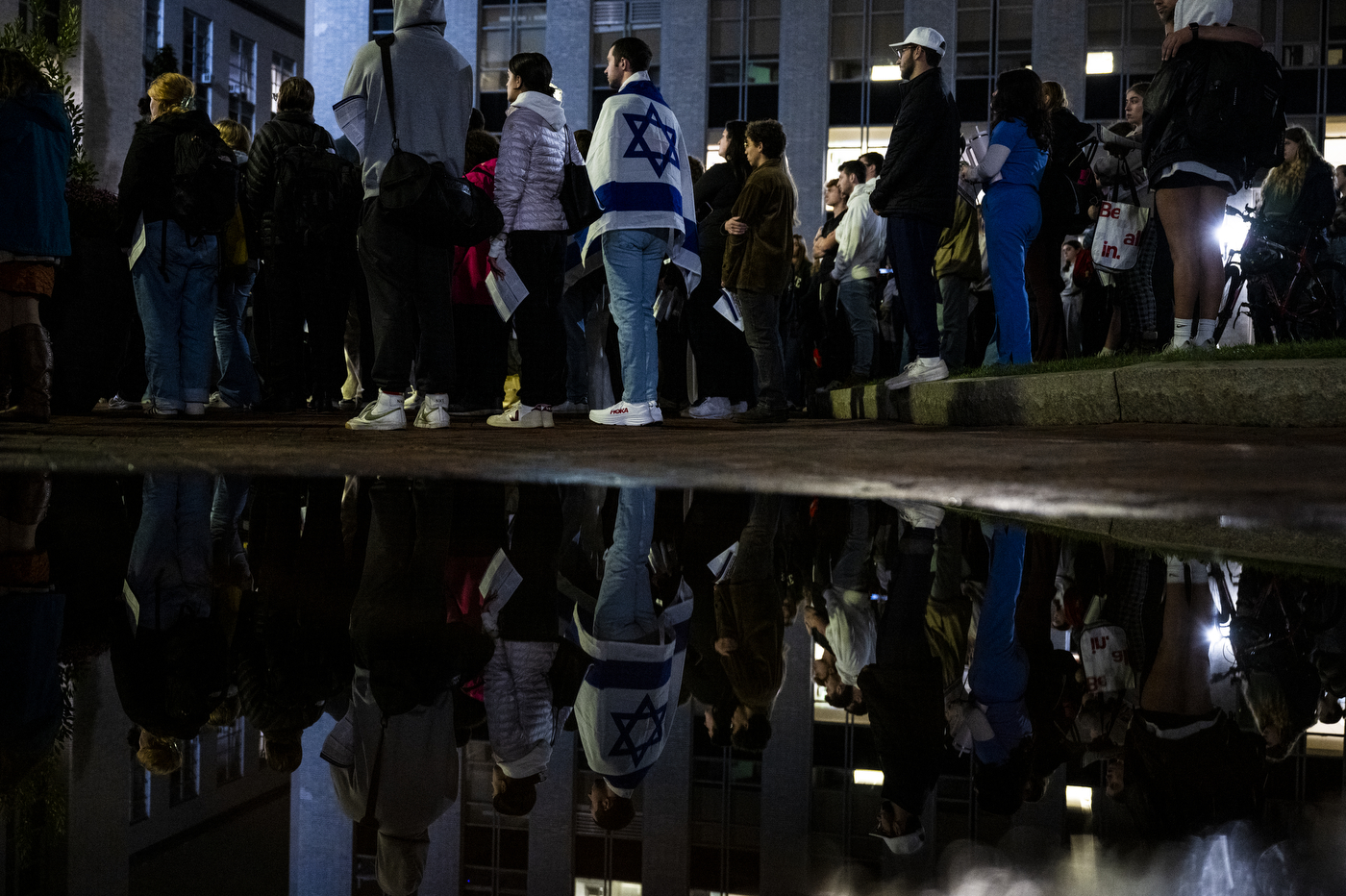
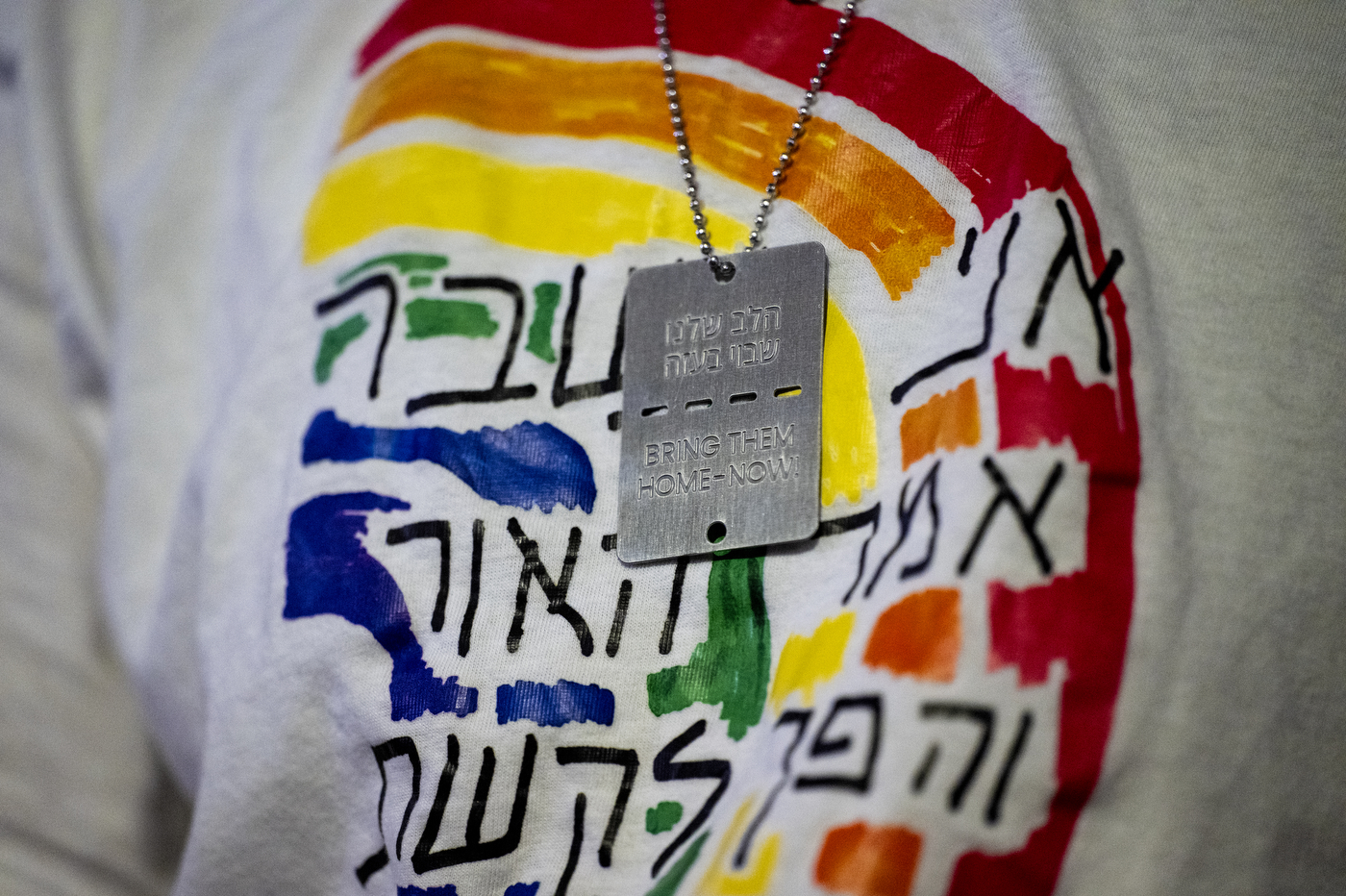
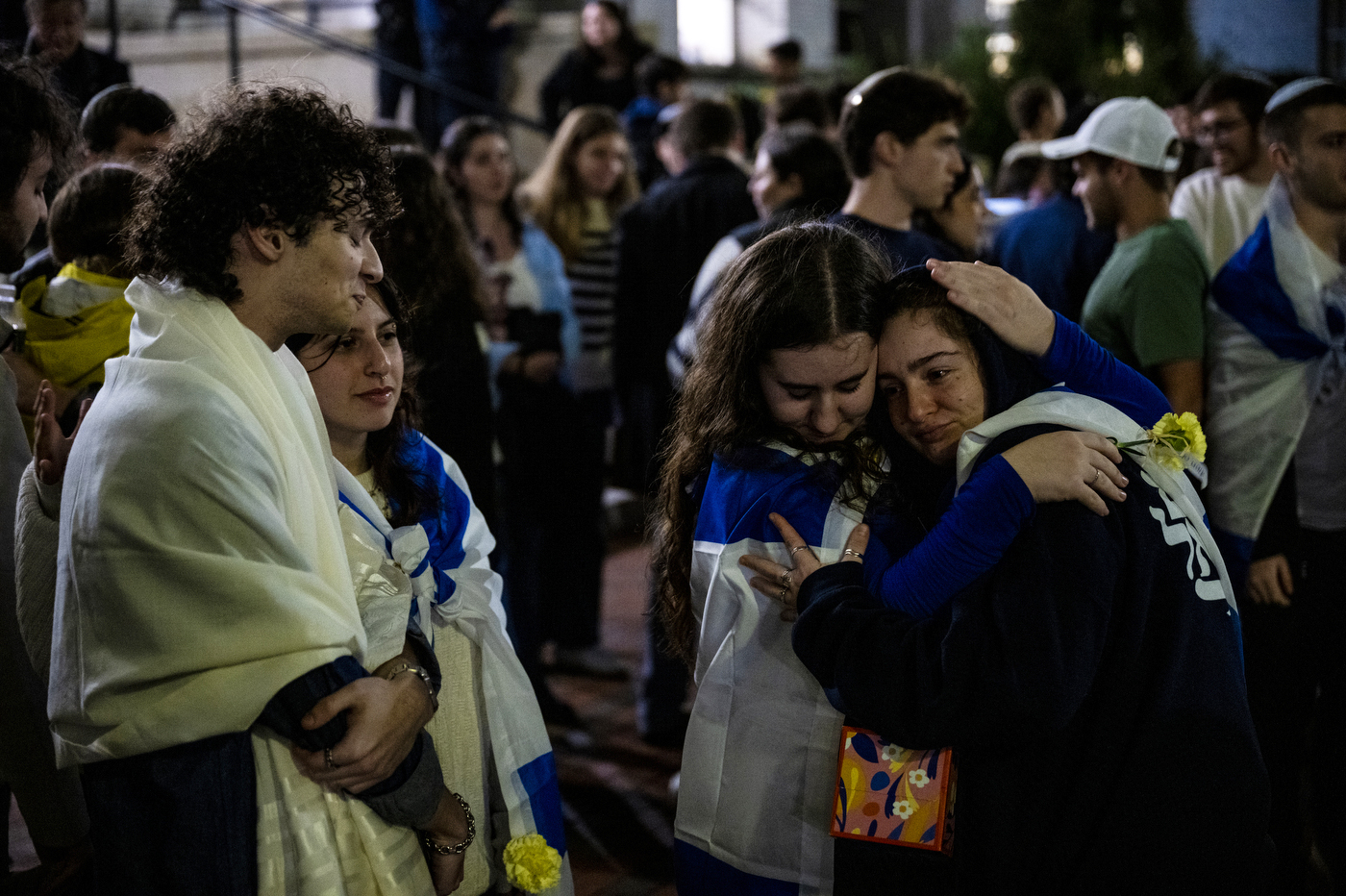
Kislin, who is from New York City, said she woke up to a dozen calls from her mom, sister and friends on Oct. 7. When she heard what happened, she called her loved ones in Israel.
Just three months prior, she had been at a music festival there, only 30 minutes from the fatal Nova Festival attack.
“This is a very personal event,” she said. “Every single one of us knows someone taken hostage, murdered or affected by October 7th. … Seeing everyone here tonight makes me feel a sense of pride and strength because I know I’m surrounded by students who will always support one another.
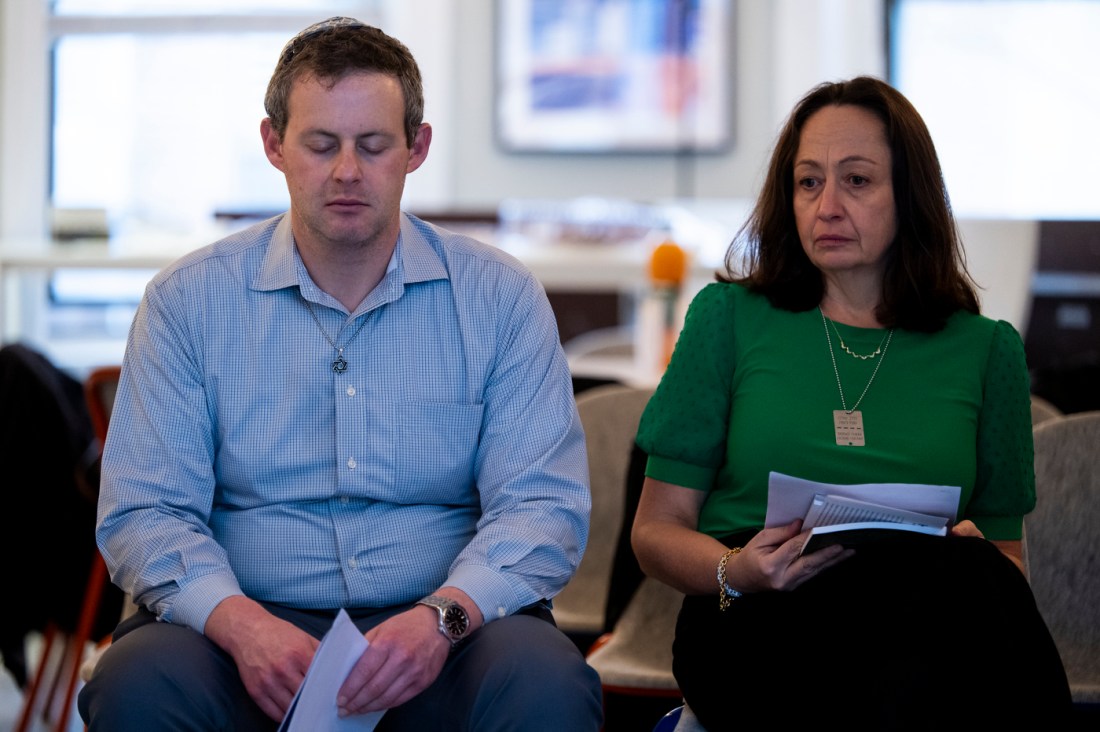
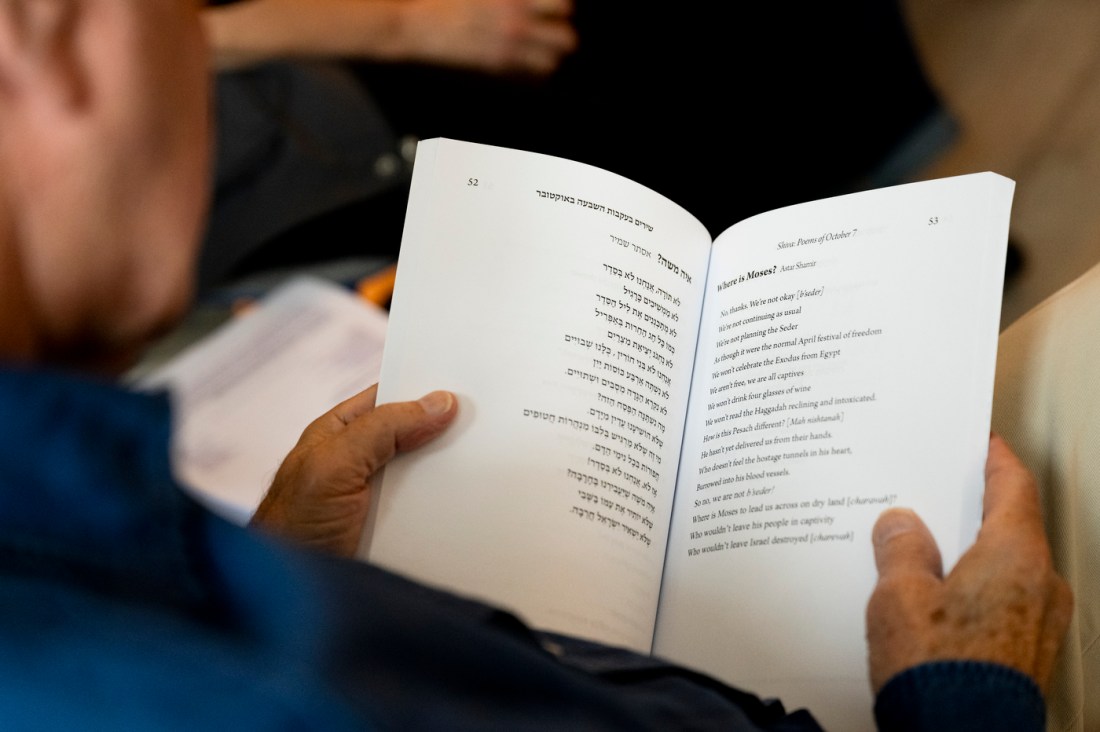
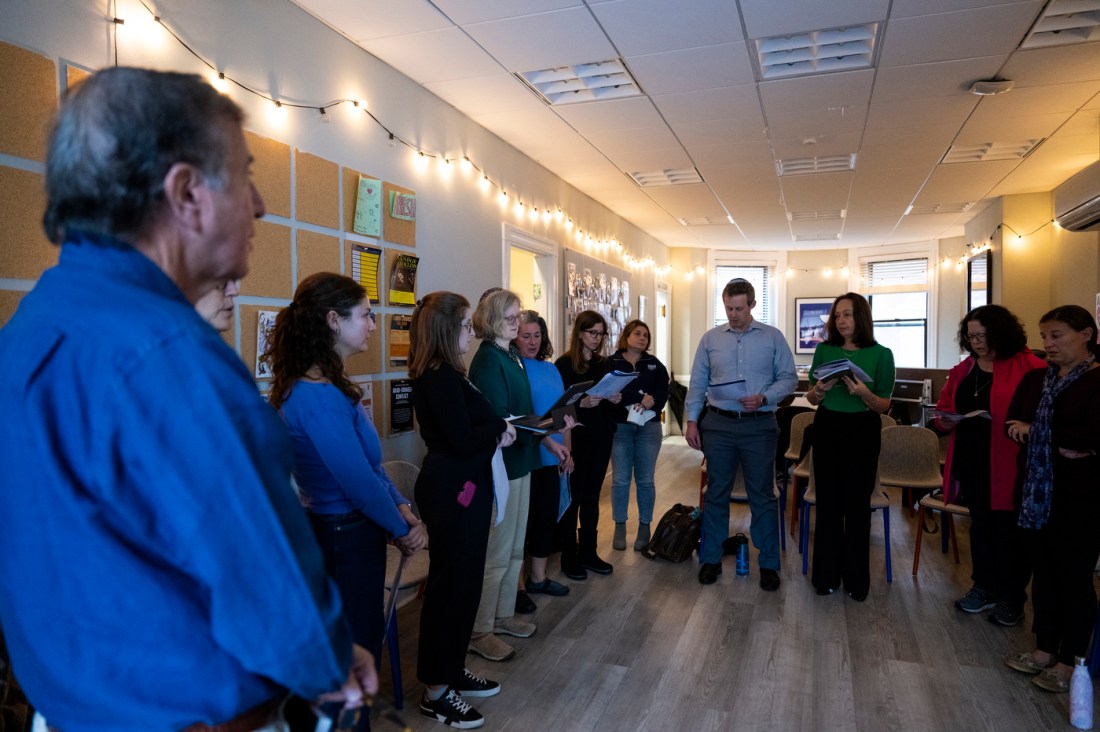
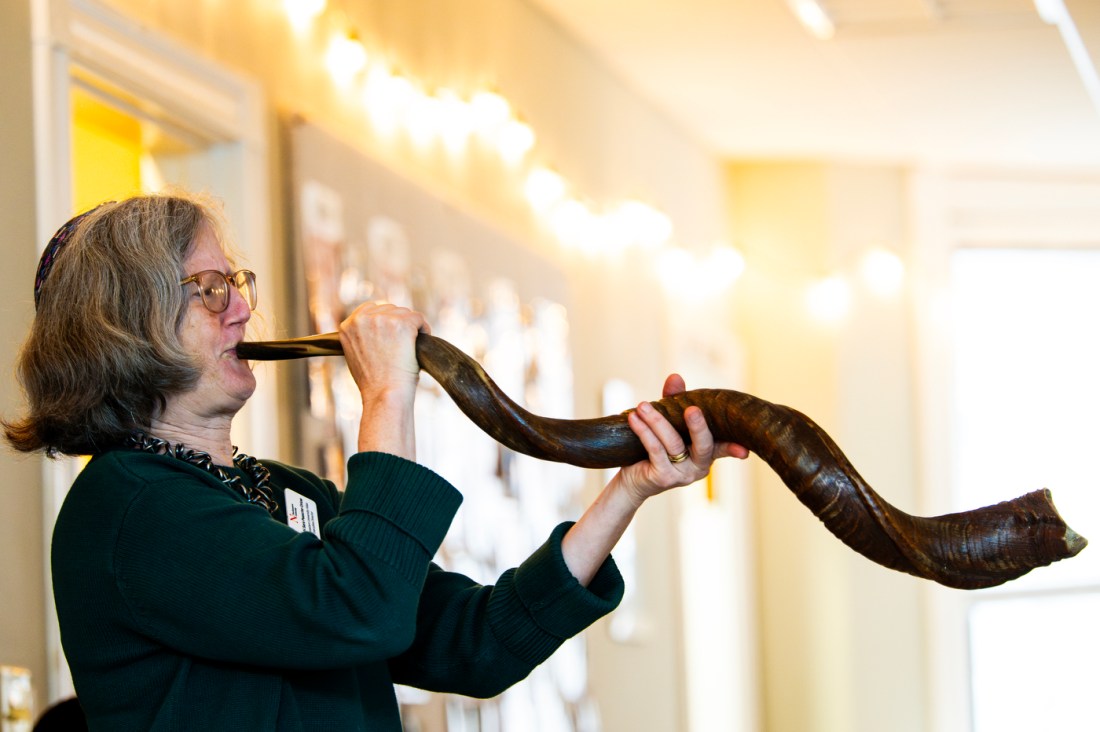
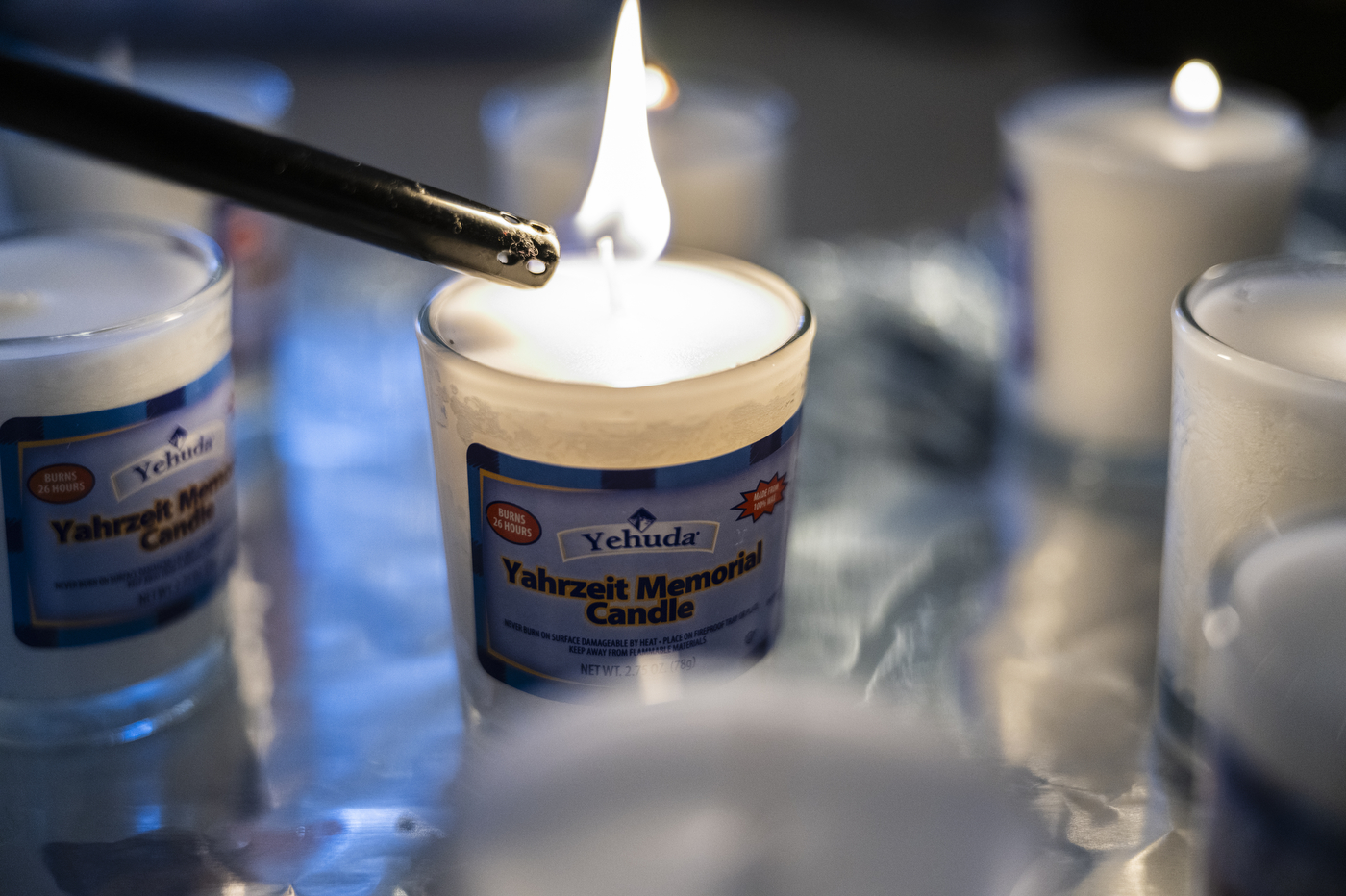
“I’m so appreciative of the community we have created on this campus,” she continued. “No matter our personal differences and what sector of Judaism you believe in … we can take time to be together when we need each other.”
Noa Azrm, a Jewish Agency Israeli Fellow at Chabad at Northeastern, described her experience waking up to a red alert in Israel on Oct. 7 and the chaos and anguish that followed as she and the rest of the country realized what had happened.
“The first month was filled with fear, uncertainty, countless prayers and sleepless nights,” she said. “But amidst the darkness, there were also moments when the light broke through. We witnessed hostages return home, and we saw the incredible unity and strength of the Israeli people.
“Today, a year later, 101 hostages are still in captivity,” she continued. “Soldiers continue to go into battle and some do not return. Civilians continue to be tragically murdered in the terrorist attacks. Yet despite all this, we have managed to find a light in the darkness. We have restored our national pride. The Jewish communities in all of the diaspora are more united than ever, and there is hope.”
The vigil concluded with students reading prayers for hope, healing and to mourn the lives lost, followed by a reading of the names of the 101 hostages still in captivity.
The scene — reflection, prayers and remembrance — was similar during the afternoon gathering of the university’s Jewish Affinity Group (JAG) for faculty and staff.
Rabbi Sara Paasche-Orlow, executive director of Northeastern Hillel and co vice chair of JAG, channeled the group’s grief by blowing the shofar.
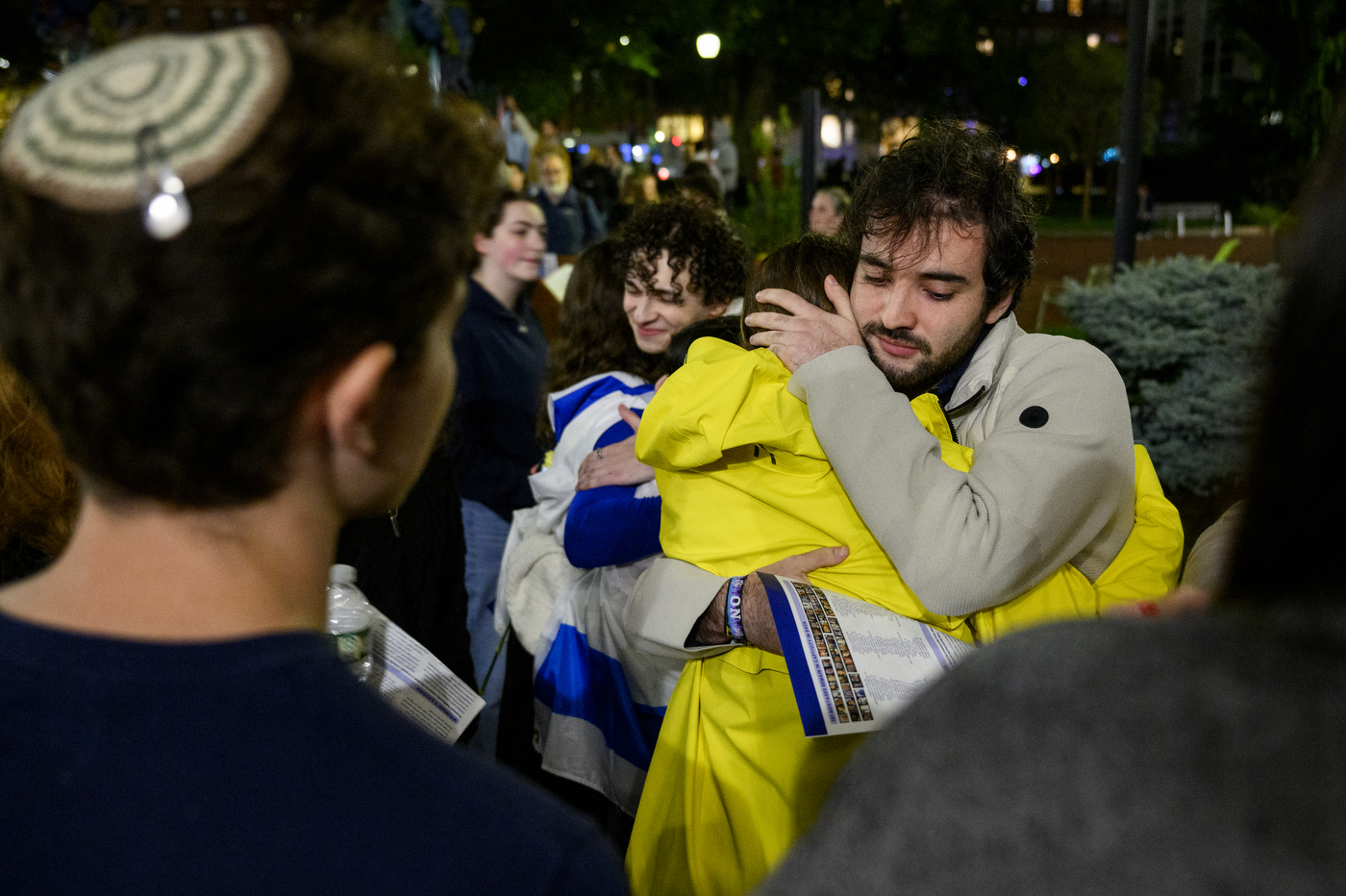
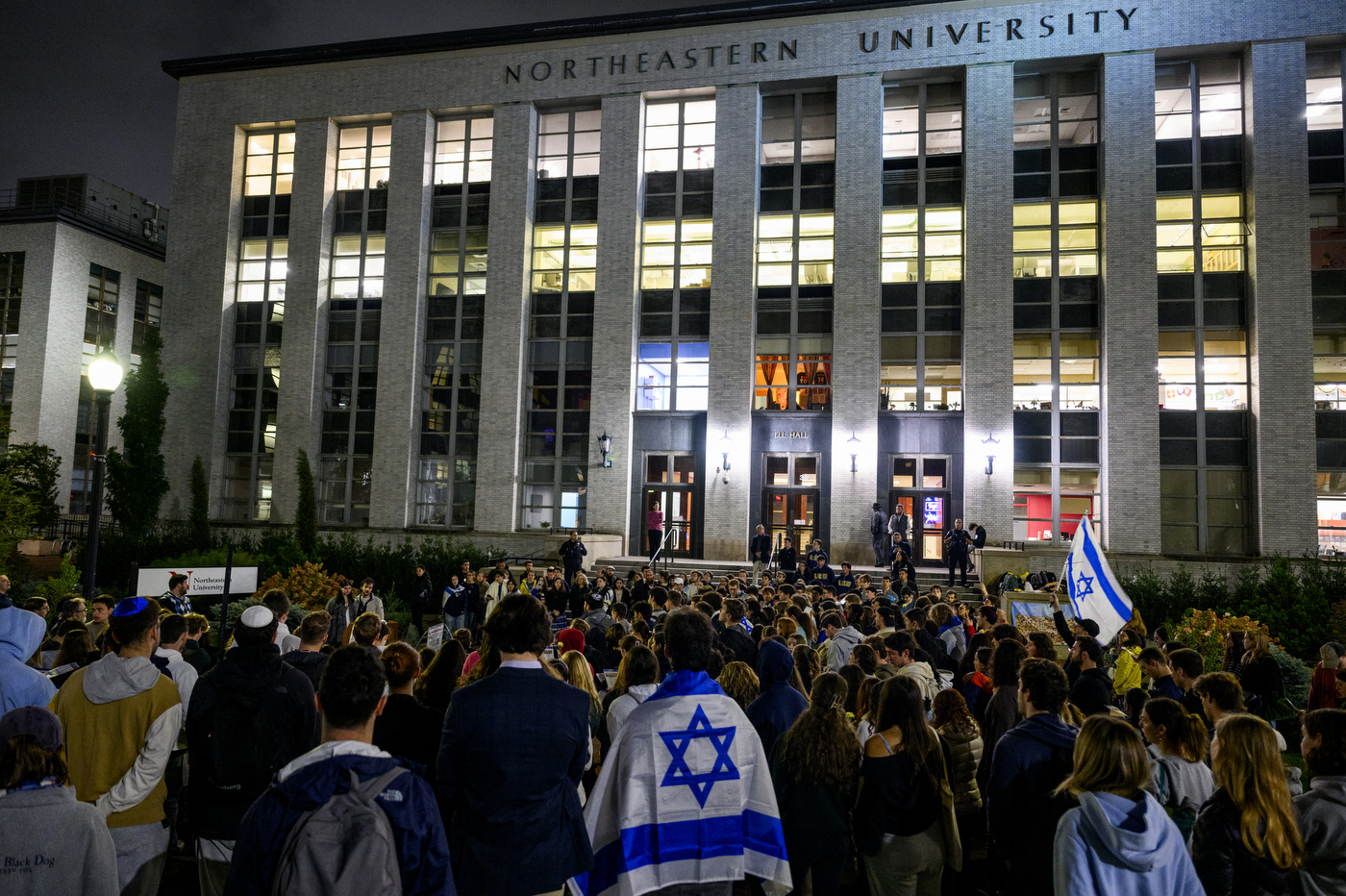
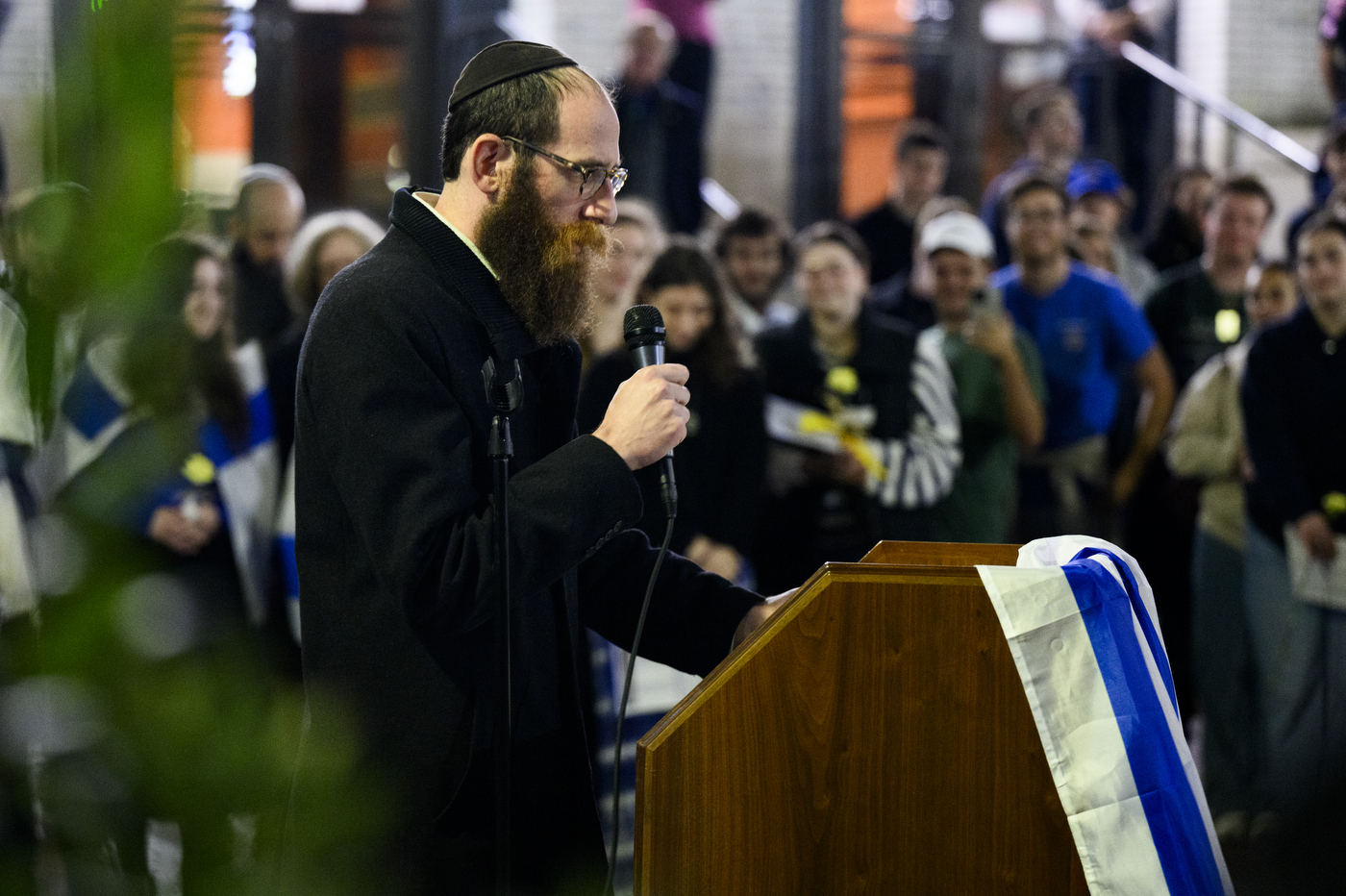
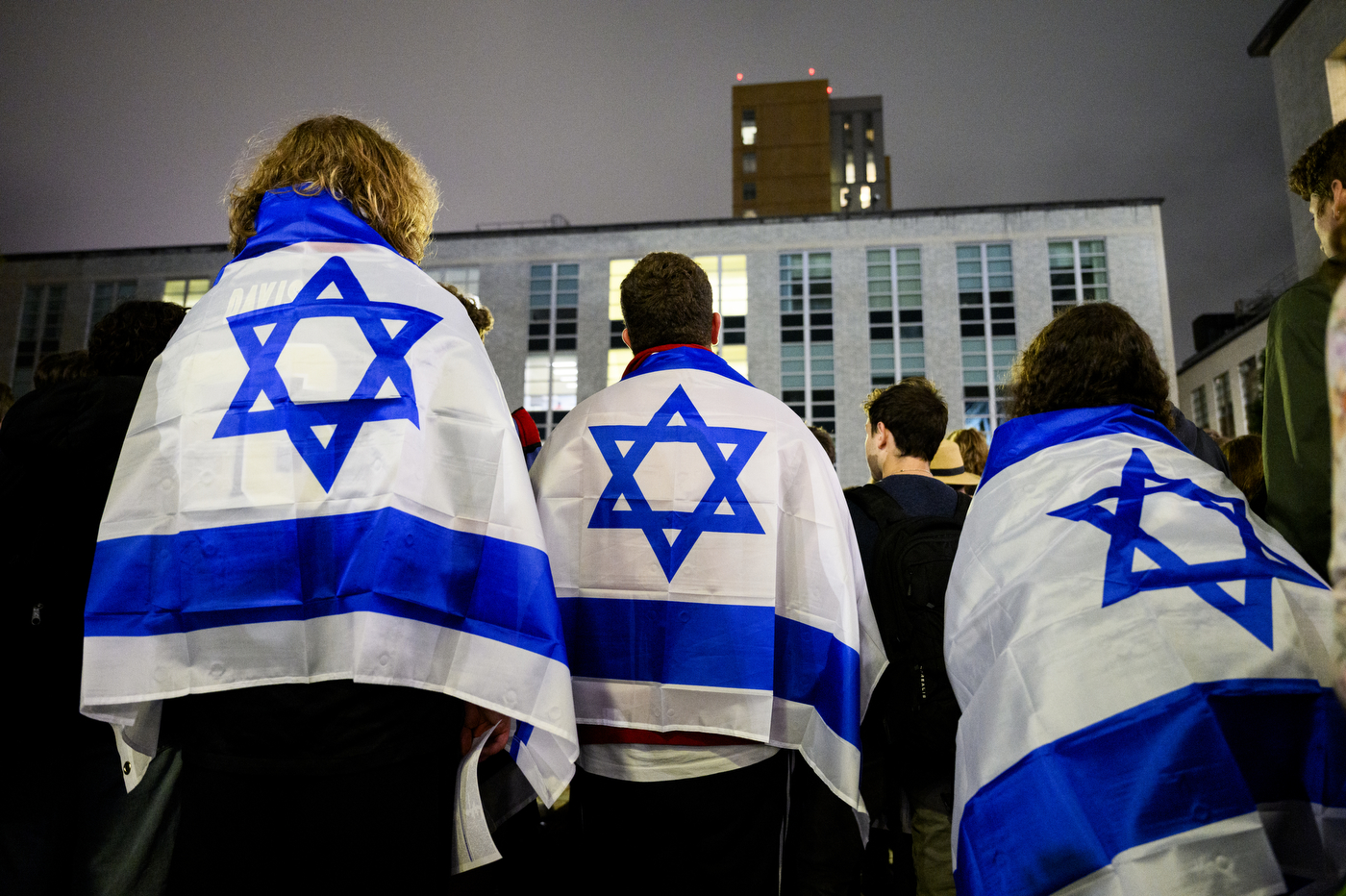
“This shofar blast is to channel the cry that I think is deep in many of us, and then to also bring out the call for hope and for justice that has carried us through generations and from the past into the future,” Paasche-Orlow said.
The room remained silent as the sound from the ram’s horn reverberated. Then attendees lined up to light Yahrzeit candles to commemorate those killed in the attack.
Faculty and staff first recited the El Malei Rachamim, a traditional prayer for those who have died. That was followed by the Mourner’s Kaddish, a prayer for healing, and a prayer for the hostages who remain in Gaza.
The attendees also went around the room and offered personal remembrances, prayers and toasts.
For instance, one attendee prayed for her mother-in-law’s family, which has been displaced from their home near the Lebanon border due to the war. Several prayed for the safety of Israeli soldiers involved in the conflict.
Some toasted friends and family who have provided support during the past year, while others offered prayers for love, hope and compassion.
An attendee recounted watching a memorial for civilians slain at a music festival on Oct. 7 and hearing a woman’s anguished scream during a moment of silence.
Paasche-Orlow went and picked up the shofar and channeled the scream. It echoed throughout the room.
“Ein milim — there are no words,” said one attendee, holding up a tiny glass of Israeli mango juice during the event. “But I will drink to hope.”


